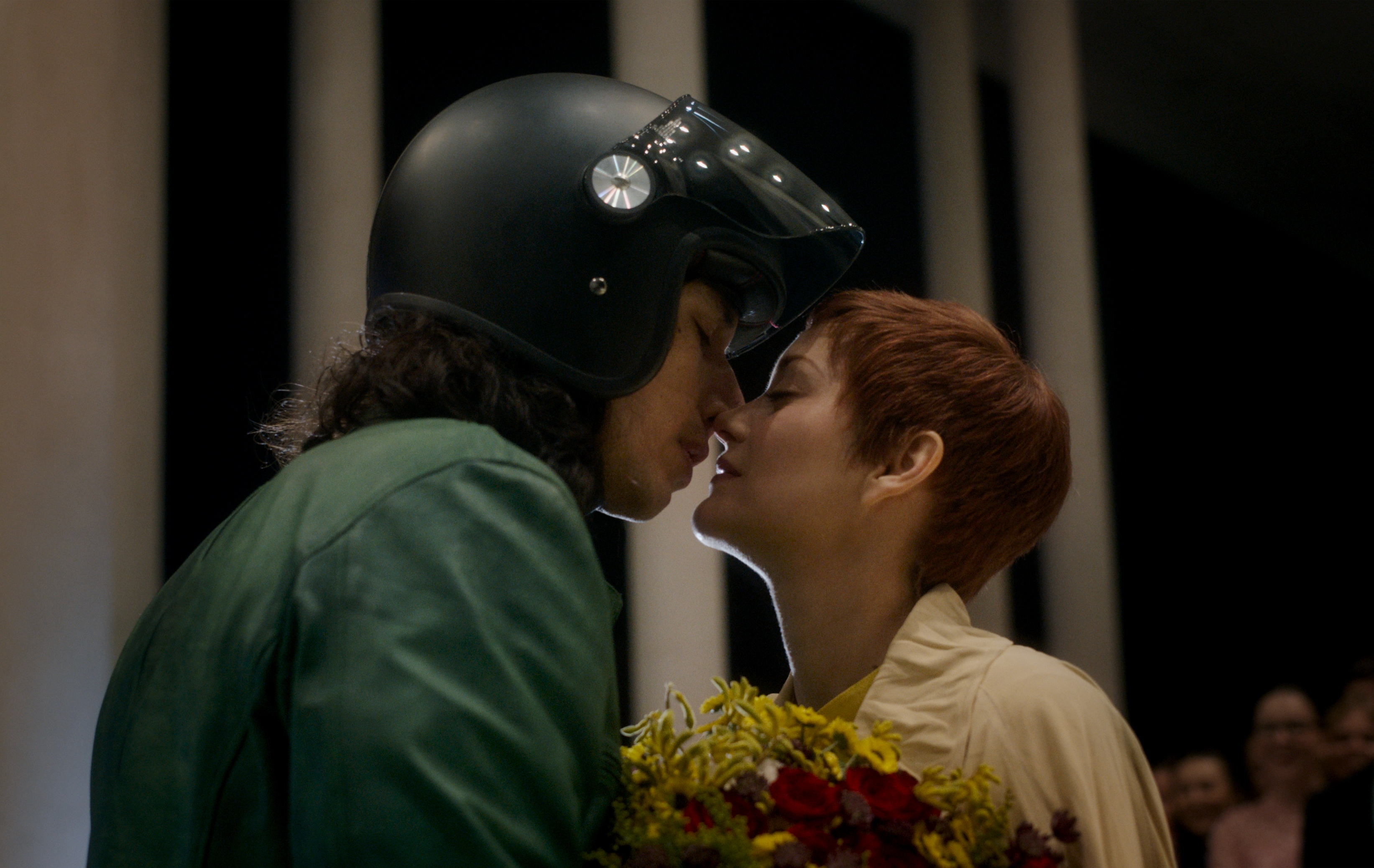Right from the very start of the Annette, the editing tells its audience that this will not be an ordinary romance movie, an ordinary musical, or

Courtesy of Amazon Studios
The premise of this movie is simple and easy to understand. Two entertainers fall in love while they are at similar levels of notoriety and success in their art. Henry McHenry (Adam Driver) is a stand-up comedian who specializes in dark, controversial, and cynical humor. Ann Defrasnoux (Marion Cotillard) is an operatic soprano who plays the martyr in the show that she is performing when we first meet the couple. The first third of the movie allows the audience to see how Henry has always had a slight disdain for Ann’s career because of the melodrama and repetitive nature.
Following Ann and Henry’s engagement, marriage, and the birth of their titular daughter Annette, that is when that slight disdain becomes much more prominent. Ann’s career takes off, and she goes from playing one simple role to a world-famous performer. During this time, the stand-up world has also changed. Henry’s same cynical and controversial routine decreases in success and fan appreciation. In particular, the joke that does not go over well is when Henry jokes about killing his wife Ann, except in the guise of the punch-line “tickling her to death.” The mixture of Ann’s success and the comedy medium maturing sends Henry down a depressive and alcoholic path.
I will leave the rest of the movie to be revealed to the viewer, but I will talk briefly about the incredible themes

The other major theme and storytelling device that excelled surrounds the eponymous character of Annette. Rather than this child being an actual human actor, the Mael brothers made the bold decision to have Ann and Henry’s offspring be played by a marionette puppet. Both of her parents are filled with flaws, and one flaw they share is using their daughter against the other for personal and emotional gain. At her birth, Annette is just as atrocious looking as Renesmee (except on purpose, unlike the vampire baby). She becomes more and more human-like as she matures and also as she figures out life. Similar to her father, by the end of her character arc, Annette is an actual human child. Annette’s song (performed beautifully by Devyn McDowell) brought me to tears and capped off the third act in a heart-wrenching style. While the metaphor of Annette as a puppet is far from a subtle one, that does not take away from the jarring visuals purposefully chosen to tell an amazing story around Annette.

Kris Dewitte / Courtesy of Amazon Studios
The last thing about this movie that really stuck out to me was the relationship between The Accompanist (Simon Helberg) and Ann. Before the film starts, and before she meets Henry, Ann Defrasnoux and her self-deprecating accompanist have a love affair. This breaks off when Ann and Henry meet so The Accompanist is left alone to see the woman he fell in love with have a family with another man. While Henry tries to exploit Annette due to her amazing singing voice, The Accompanist shows true love to Annette and doesn’t try to use her. While Ann, Henry, and Annette all have tumultuous relationships with one another (to no fault of the child) The Accompanist and Annette’s relationship is genuinely built on love and compassion.
This film struggles to build a coherent story while having bold and experimental visuals that confused more than helped. However, the overall themes throughout the movie make this movie one to watch. Also, even though the writing of the characters stumbles from knowing who they are, the performances put in by Driver, Cotillard, Helberg, and McDowell could lead to some awards and recognition over the next few months. If musicals are your thing, then you will likely find some joy out of this movie.
Annette is Now Streaming on Prime Video



